The internet alters our perception of truth from "summary" of The Internet of Us: Knowing More and Understanding Less in the Age of Big Data by Michael P. Lynch
In our digital age, the internet plays a significant role in shaping the way we perceive truth. With the vast amount of information available at our fingertips, we are constantly bombarded with various sources claiming to provide the ultimate truth. This abundance of information can sometimes lead to confusion and uncertainty, as it becomes challenging to discern what is true and what is false. Moreover, the Internet has the power to create filter bubbles, where individuals are only exposed to information that aligns with their pre-existing beliefs and opinions. This selective exposure can reinforce confirmation bias, making it difficult for people to consider alternative perspectives or engage in critical thinking. Furthermore, the rise of fake news and misinformation on the internet has further complicated our understanding of truth. In a world where anyone can publish content online, it has become increasingly challenging to separate fact from fiction. This blurring of lines between truth and falsehood can have detrimental effects on society, as misinformation spreads rapidly and can influence public opinion and decision-making. Additionally, the internet has changed the way we consume information, leading to a culture of instant gratification and superficial understanding. With the ability to quickly access information online, people may be less inclined to engage in deep, critical thinking or conduct thorough research before forming opinions. This reliance on quick and easy answers can hinder our ability to truly understand complex issues and arrive at well-informed conclusions.- The internet has undoubtedly altered our perception of truth by inundating us with vast amounts of information, creating filter bubbles, propagating fake news, and promoting a culture of instant gratification. It is crucial for individuals to approach online information with a critical eye, question the sources and credibility of information, and strive to engage in meaningful dialogue to foster a deeper understanding of the world around us.
Similar Posts

The rise of automation threatens millions of jobs in various industries
The march of automation through the economy is relentless. Every year, more tasks that used to require human labor are being ta...
Use persuasive language to make your argument more compelling
To win an argument, you must use persuasive language that captures the attention of your audience and convinces them of your po...
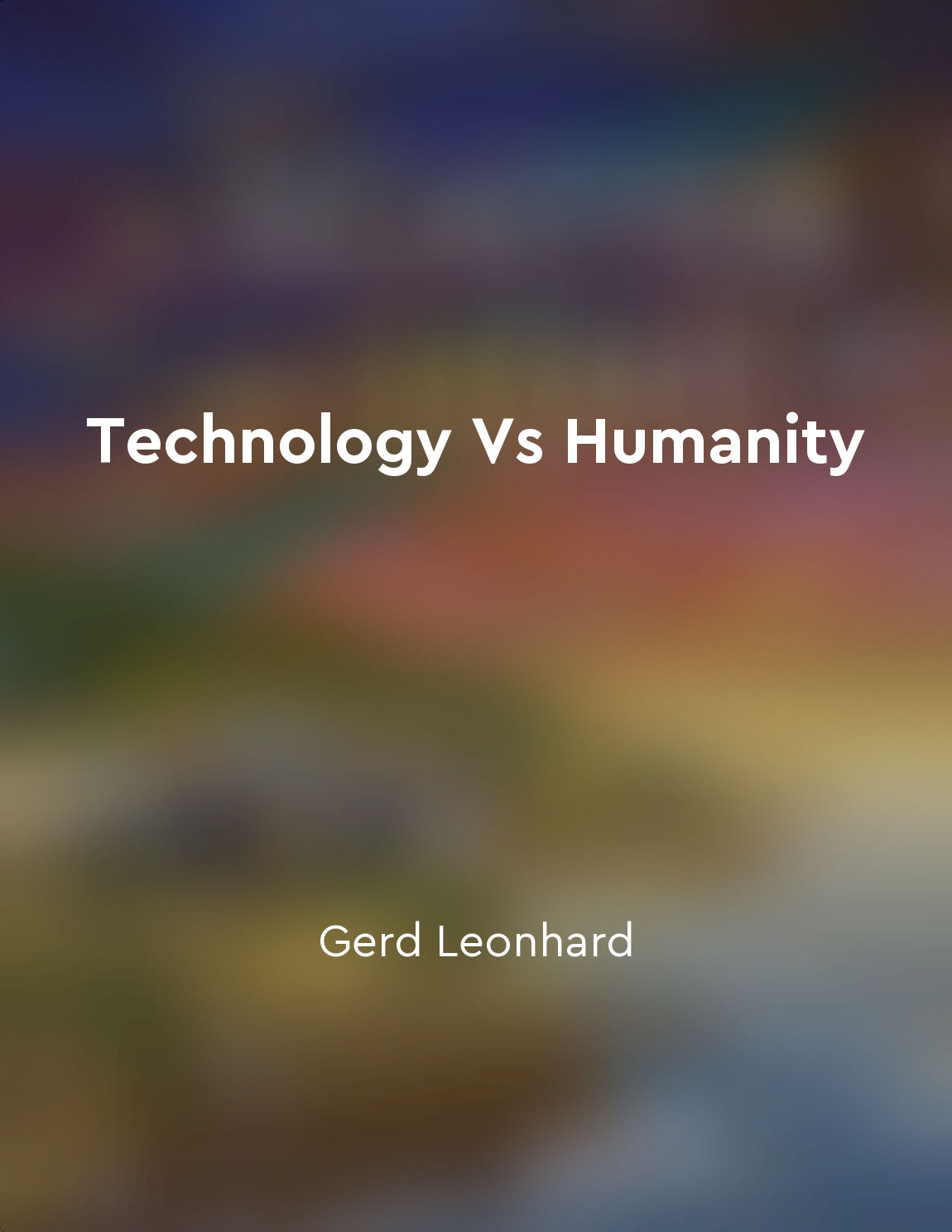
Technology cannot replace human creativity
The essence of human creativity is something that technology simply cannot replicate. While machines are capable of performing ...
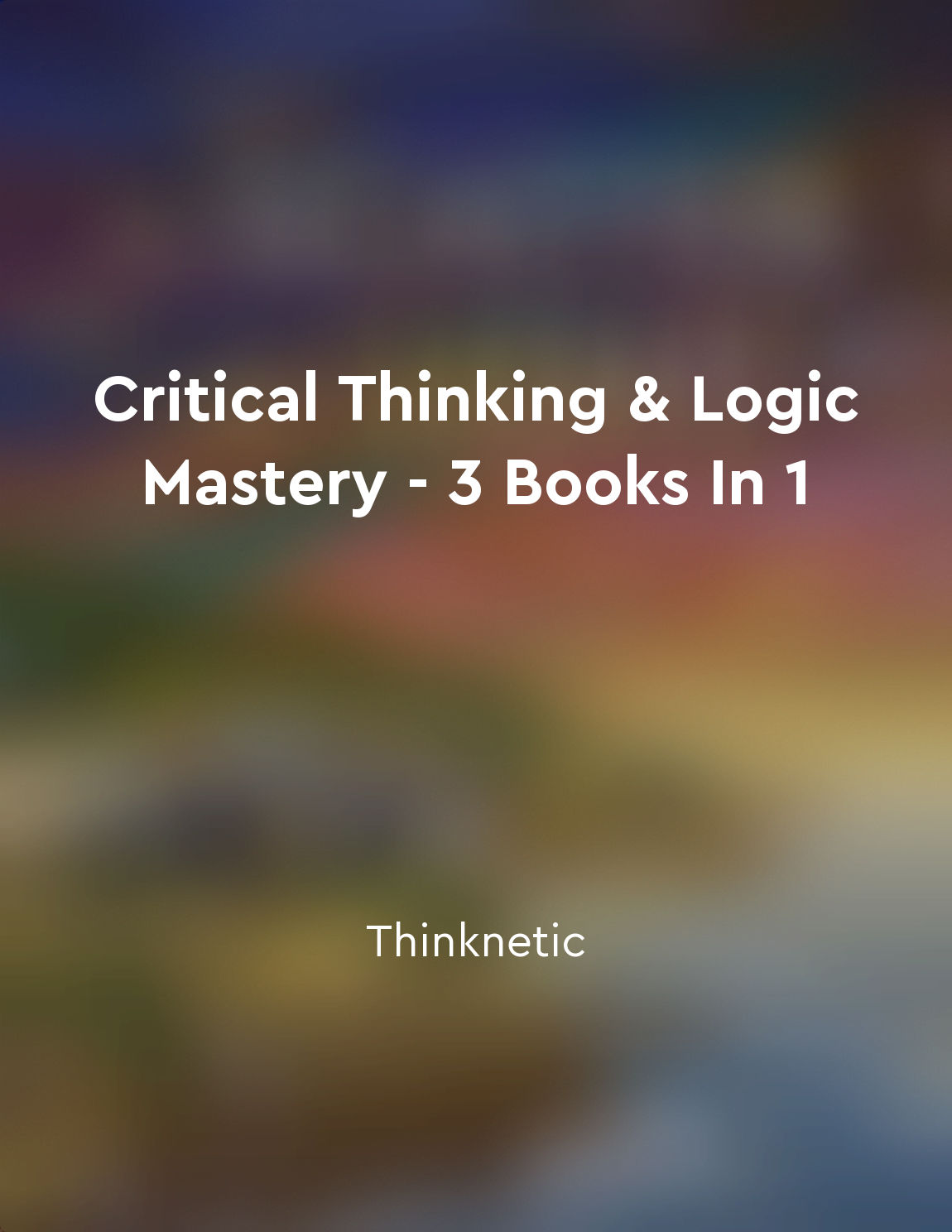
Identifying cognitive biases can improve decisionmaking
Recognizing cognitive biases is crucial in enhancing our decision-making abilities. These biases are inherent tendencies that c...
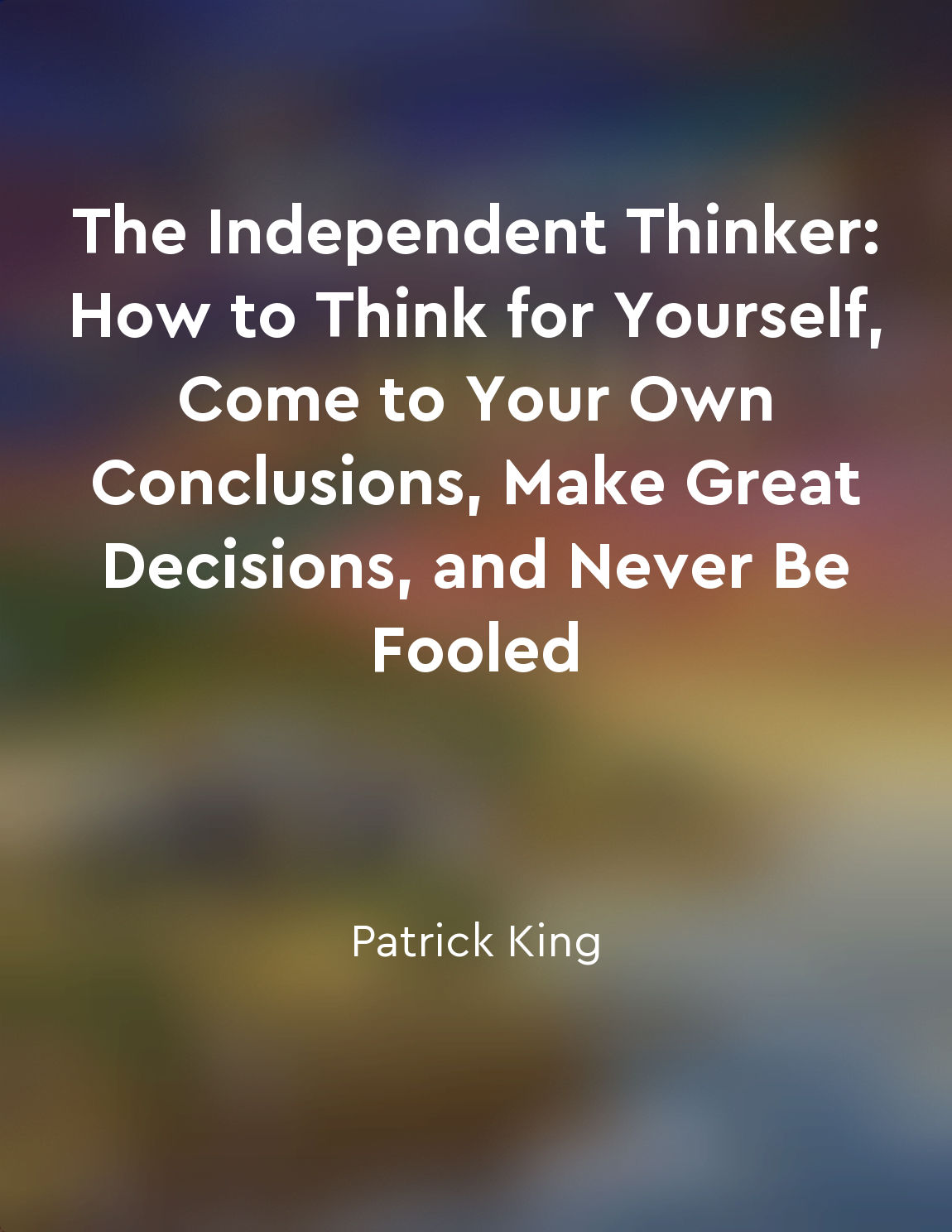
Question everything
The concept of questioning everything is a fundamental principle of independent thinking. It is about challenging assumptions, ...
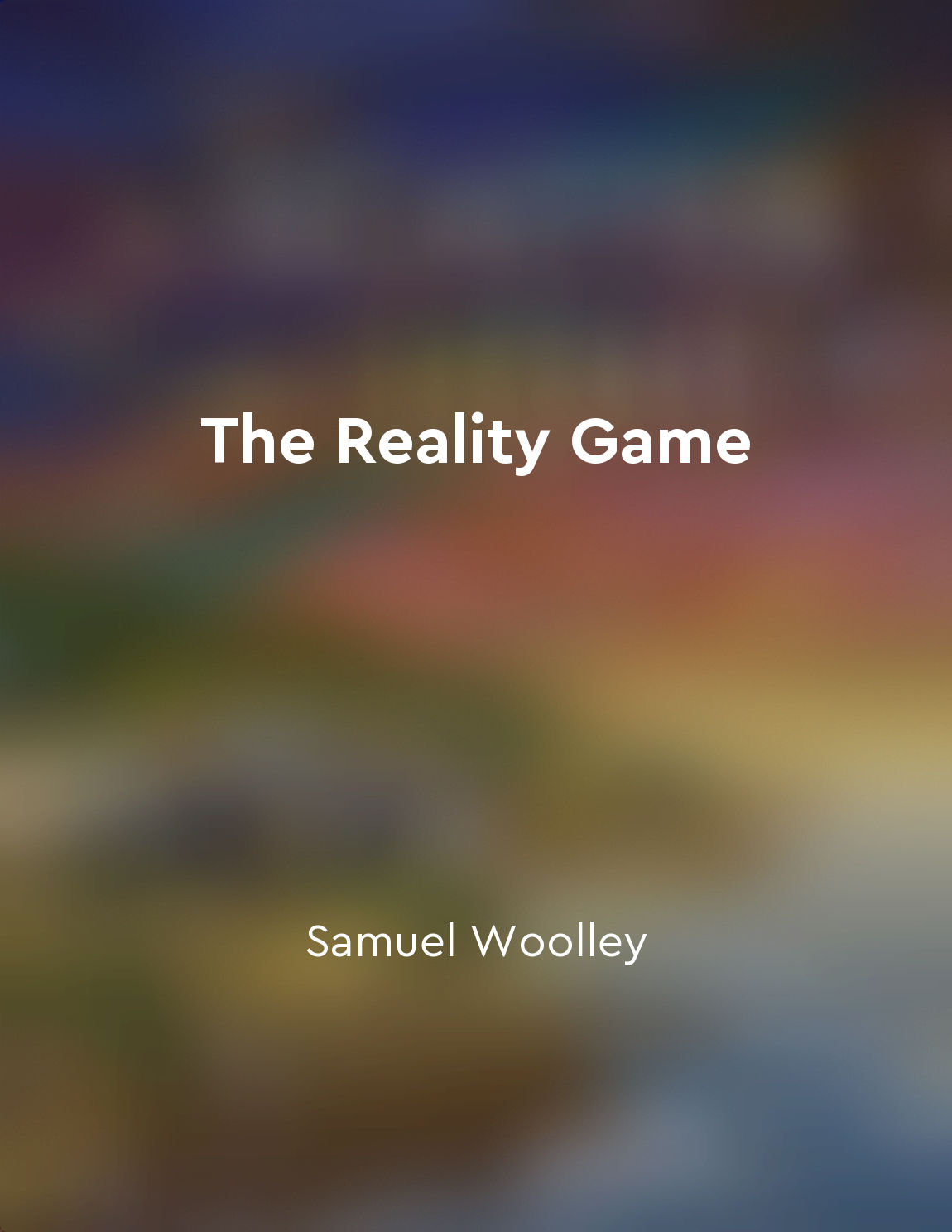
Critical thinking skills are essential in the digital age
In the digital age, we are inundated with information from various sources, making it crucial for individuals to possess strong...
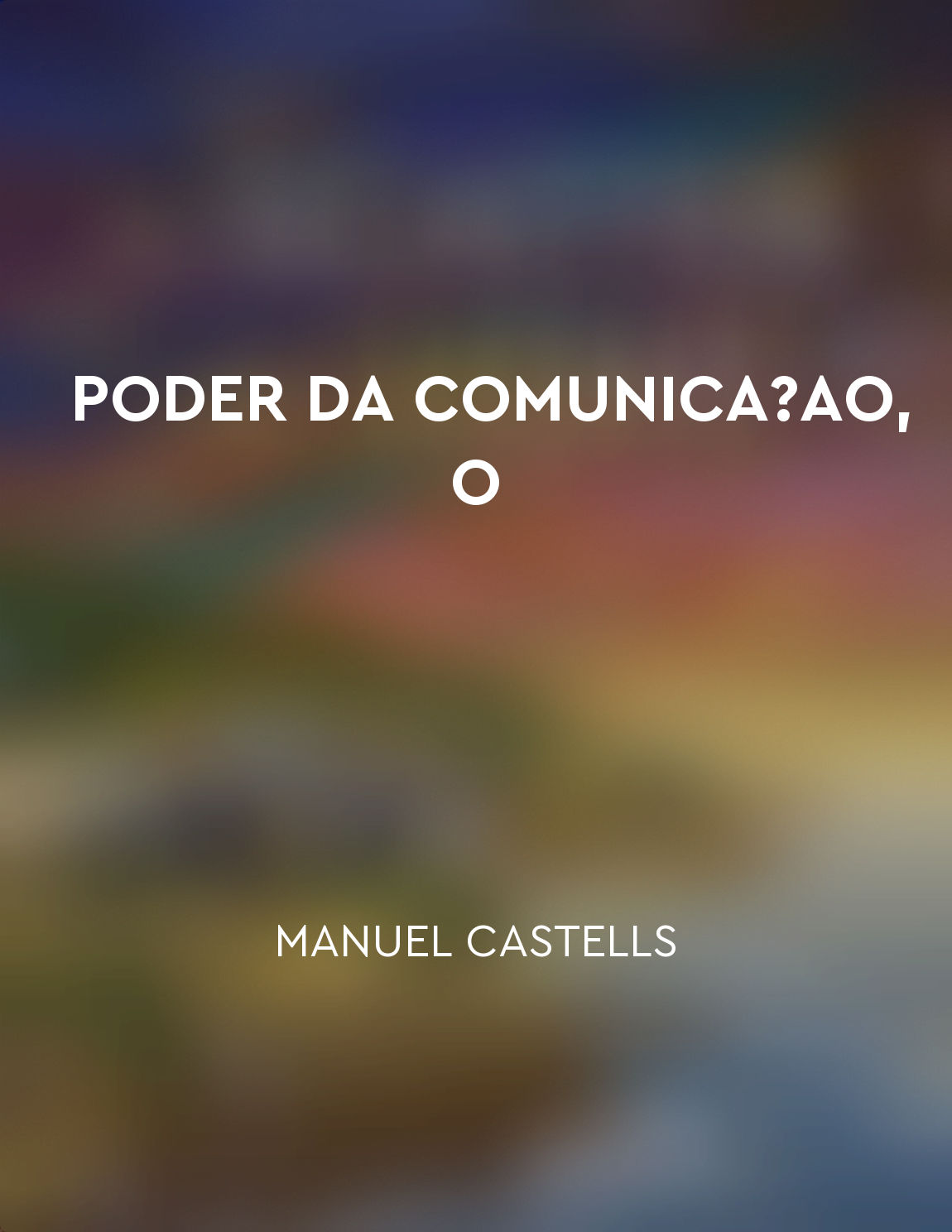
Trust is essential in building successful communication networks
Trust is the cornerstone of successful communication networks. Without trust, communication becomes fragmented and ineffective....

Data mining facilitates targeted propaganda
Data mining plays a crucial role in the dissemination of targeted propaganda. By analyzing vast amounts of data, individuals an...

The manipulation of reality is a dangerous game
In the digital age, reality has become a malleable concept, easily shaped and distorted by those with the power and resources t...

